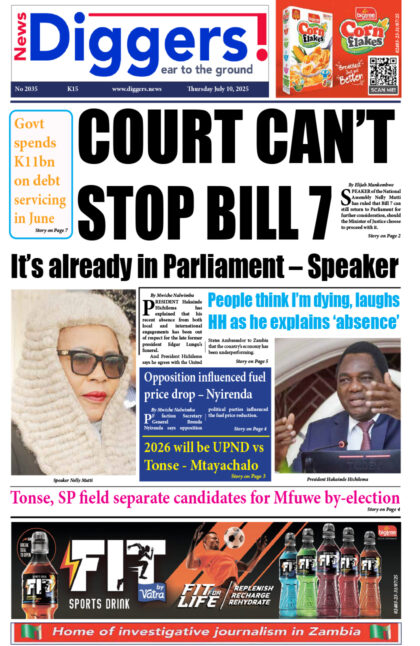CHAIRPERSON of the Technical Committee on the Review of the Penal Code and the Criminal Procedure Code Justice Chalwe Mchenga says a nolle prosequi is a necessary tool of a criminal prosecution, adding that the DPP is not required to give reasons for taking that route.
Speaking when he featured on “Talking Law Review” programme on Hot FM, Wednesday, Justice Mchenga who is also deputy Judge President of the Court of Appeal, said the law gives the DPP power to withdraw a case, either permanently or with a view to have a re-arrest.
When asked why the committee did not consider removing the nolle prosequi as it was highly questionable in the eyes of the public, Justice Mchenga said the committee found that there was nothing wrong with its current form and therefore recommended that it should remain the same.
“So during our deliberations, we actually did consider it and we found nothing wrong with its current form. The nolle prosequi is a necessary tool of a criminal prosecution. What it basically means is that at that particular point, the Director of Public Prosecutions does not intend to go ahead with the prosecution, we need to understand it in context. So when a case is brought before the Director of Public Prosecution, before being taken to court, the Director of Public Prosecution considers if the case is taken to court, there are chances that the accused person will be convicted, that is the first consideration. If the DPP comes to that conclusion, the case is taken to court, as the case goes on, it may become apparent that the likelihood of a conviction is slim. The law gives the DPP power to withdraw the case either permanently or with a view to have a rearrest. In our recommendation, we recommend that the nolle remains,” he said.
Justice Mchenga said giving reasons for entering into a nolle prosequi might prejudice the case.
He said the committee was however of the view that in a situation where a case was hopeless, the DPP should be able to withdraw it and offer no evidence so that the accused person was acquitted.
“We also recommend that the DPP should not be required to give reasons, because if for example the DPP is withdrawing a case with a view to reorganising it, if that is publicly announced in court, it may prejudice whatever reorganisation the DPP wants to do. But in addition to that, what we have recommended is that the DPP should have to offer no evidence. A complaint has been that there are times that when the DPP withdraws a case and there is no intention to restart the case, it leaves a person in limbo thinking that I may be arrested or not. So we have recommended that the DPP in a situation where the case is hopeless should be able to withdraw the case and offer no evidence so that the accused person is acquitted,” said Justice Mchenga.



















